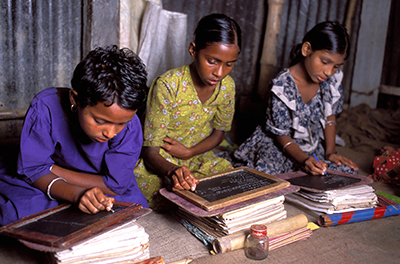Learning to Build National Research and Education Networks (NRENs) in South Asia

Summary
The Internet has become an integral part of the delivery of quality education nearly worldwide, except in countries such as Afghanistan, Bangladesh, Bhutan, and Nepal that lack easy, cost-effective Internet access. Wanting to address this academic isolation and improve higher education, these four countries approached the World Bank for help. In response, the World Bank organized a South-South Knowledge Exchange with Pakistan, Sri Lanka, Thailand, and Vietnam to share information on how to establish and manage National Research and Education Networks (NRENs).
The exchange motivated Afghani, Bangladeshi, Bhutanese, and Nepalese officials to establish NRENs in their own countries. The knowledge exchange directly resulted in action plans to implement NRENs.
“When Communities of Practice came together from various nations to share their experiences of successful NRENs, policymakers in the recipient countries were inspired [when they learned about] the amount of competitive edge the networks have provided to each nation,” said Mr. Yousuf Niaz, an engineer with Bangladesh’s University Grant Commission. “Seeing was believing!” he added.
For the year and a half after the knowledge exchange, all four countries have made significant progress in developing their own NRENs and joining the larger Trans-Eurasia Information Network (TEIN3).
Beneficiaries / Participants
Higher education systems in developing countries have been struggling to provide adequate Internet access to their students and faculty since the invention of the World Wide Web. As the global research and education community gradually moved toward digital means of communication, collaboration, and distribution, a digital divide opened among the World Bank’s client countries. As the ability of regular commercial networks to supply the required speed and quality of Internet service was fast becoming unsatisfactory, many countries established dedicated fiber-optic National Research and Education Networks (NRENs). A number of countries in South and East Asia, notably Pakistan, Sri Lanka, Thailand, and Vietnam, have joined the Organization for Economic Co-operation and Development (OECD) countries in building and operating dedicated NRENs. The countries that did not – like Afghanistan, Bangladesh, Bhutan, and Nepal – however, faced ever-growing academic isolation and lagging higher education.
In recent years, the exponential growth in the availability of fiber optic cables within countries and under the oceans has created an opportunity for universities and ministries of education of these countries to close the digital divide and join the international research and education community on a more equal footing. Afghanistan, Bangladesh, Bhutan, and Nepal only recently gained access to international fiber optic cables, and in-country fiber networks followed. In 2009, they approached the World Bank for a knowledge-sharing program to increase their capacity to plan, implement, and manage NRENs. The Bank’s response was to offer a blended learning program through the Global Development Learning Network (GDLN), involving videoconferences, online discussions, a study tour, and two workshops where the four countries learned about the experiences of Pakistan, Sri Lanka, Thailand, and Vietnam in NREN management.
Moving forward
These knowledge exchanges have directly contributed to the early planning and implementation of NRENs in South Asia.
- Bangladesh procured physical space and began installing fiber optic cable for a network that will initially link six universities: Dhaka University, Bangladesh University of Engineering and Technology, Bangabandhu Seikh Mujib Medical University, Sher-Bangla Agri University, Jahangir Nagar University, and the North-South University. The Bangladeshi NREN will also connect to the larger the Trans-Eurasia Information Network (TEIN3) a network for research and education that connects communities across Asia-Pacific and Europe.
- Bhutan started procuring space, recruiting manpower, and negotiating bandwidth capacity for its university network. Bhutan is also in the process of connecting to TEIN3.
- Nepal furthered its Nepal Research and Education Network and joined TEIN3.
- Kabul University in Afghanistan began developing plans for its research network that will leverage the country’s fiber optic infrastructure.
Once implemented and connected to similar country and regional networks worldwide, these networks will enable university students and administrators to better connect with the vast knowledge resources available throughout the world, thereby improving education systems and informing research projects.

 China
China Colombia
Colombia Denmark
Denmark India
India Indonesia
Indonesia Mexico
Mexico Russian Federation
Russian Federation Spain
Spain United Kingdom
United Kingdom